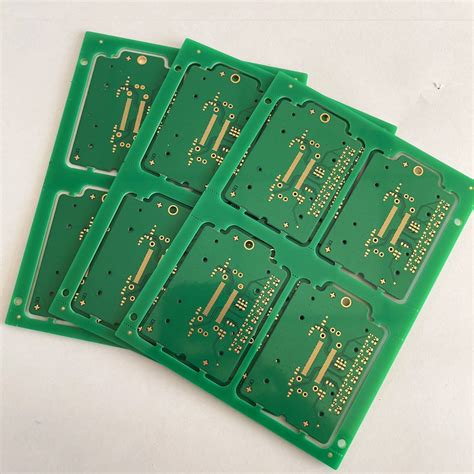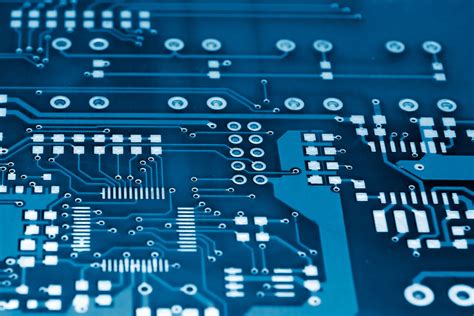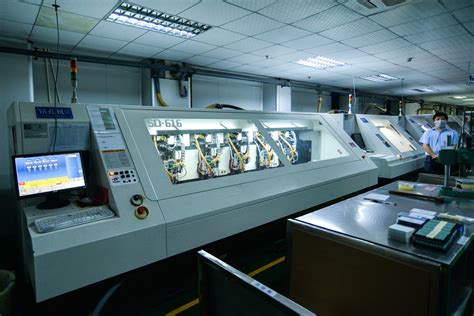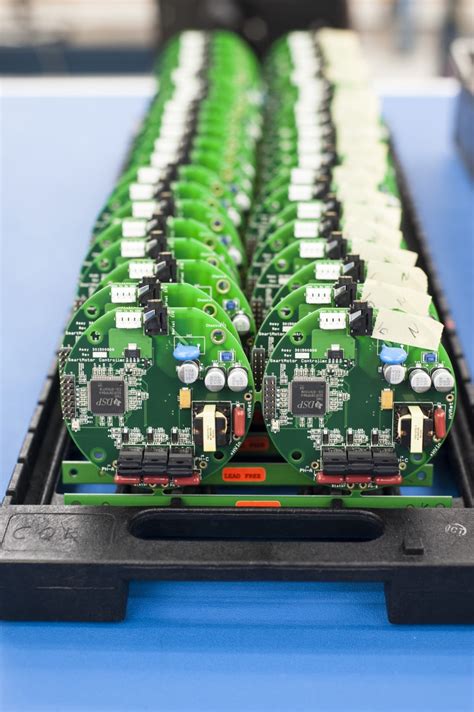Top Low-Volume PCB Manufacturers for Rapid Prototyping

Key Takeaways
When selecting PCB manufacturing partners for prototyping, you’ll want to prioritize suppliers that balance PCB manufacturing cost with speed and reliability. Most PCB manufacturing companies catering to low-volume orders focus on rapid turnaround (often 24–72 hours) while maintaining rigorous quality checks—critical for avoiding delays in testing phases. For hobbyists or startups, opting for PCB manufacturing business models with tiered pricing ensures affordability even for single-board orders.
Here’s a quick comparison of key considerations:
| Factor | Priority for Prototyping |
|---|---|
| Cost per board | Higher flexibility for 1–5 units |
| Lead time | 24–72 hours ideal for iterations |
| Material options | FR-4 standard vs. advanced substrates |
| Testing protocols | Automated optical inspection (AOI) |
Domestic suppliers often excel in fast communication and shorter shipping times, while overseas providers might reduce PCB manufacturing cost for budget-conscious projects. Always verify certifications like ISO 9001 or UL listings to ensure compliance with your industry’s standards. For custom PCB assembly, confirm whether the supplier integrates component sourcing or supports partial-turnkey workflows—this simplifies small-batch testing. Balancing these factors ensures you get functional prototypes without overspending.
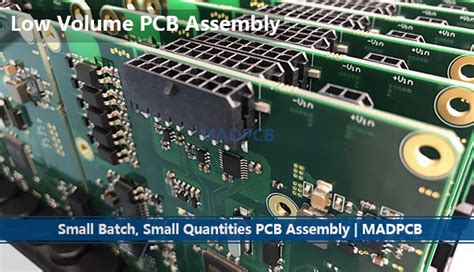
Low-Volume PCB Prototyping Services Compared
When selecting PCB manufacturing partners for prototyping, you’ll encounter varying approaches to balancing speed, quality, and PCB manufacturing cost. Smaller PCB manufacturing companies often excel in low-volume orders (1–5 boards), offering tailored services like design feedback or material customization. Larger firms may prioritize economies of scale, which can reduce per-unit costs but extend lead times.
For rapid iterations, focus on providers with dedicated prototyping workflows. Some companies integrate automated quoting systems to streamline order processing, while others emphasize hands-on engineering support. Turnaround times typically range from 24 hours to 5 days, depending on layer count and complexity.
Tip: When evaluating options, request a detailed breakdown of PCB manufacturing cost components—materials, tooling fees, and testing—to avoid hidden charges.
Domestic suppliers, such as those highlighted here, often provide faster shipping and clearer communication, while overseas partners might lower costs for budget-sensitive projects. However, ensure your chosen PCB manufacturing business adheres to industry certifications like ISO 9001 or IPC-A-600 to guarantee reliability.
Flexibility in order quantities and revisions is critical for prototyping. Look for companies offering no-charge design file reviews or free re-spins for minor adjustments, as these features optimize both time and resources during development cycles.
Fast-Turnaround PCB Manufacturers for Prototypes
When searching for PCB manufacturing companies that prioritize speed without compromising quality, you’ll want to focus on providers with optimized production workflows. Many manufacturers now offer 48-hour turnaround times for prototype orders, leveraging advanced automation and in-house material stockpiling to eliminate delays. These services are ideal for validating designs quickly, especially if you’re iterating on a tight development schedule.
Key factors to evaluate include how a PCB manufacturing business balances PCB manufacturing cost with rapid delivery. Domestic suppliers often excel in speed due to shorter logistics chains, while overseas options may reduce expenses—though lead times can vary. Look for transparent pricing models that break down costs per layer or board size, ensuring no hidden fees erode your budget.
For prototypes, flexible order minimums (as low as 1–5 boards) let you test designs affordably before committing to larger batches. Some providers even bundle PCB manufacturing with assembly services, streamlining the path from concept to functional testing. Always verify quality certifications like ISO 9001 or UL listings, as faster turnarounds shouldn’t mean sacrificing reliability. Pro tip: Prioritize companies offering real-time order tracking—this transparency helps you manage deadlines effectively.

Affordable PCB Prototyping Solutions Reviewed
When searching for PCB manufacturing services tailored to prototyping needs, balancing PCB manufacturing cost with quality is critical. Many PCB manufacturing companies now offer tiered pricing models, allowing you to scale expenses based on project complexity or material requirements. For instance, opting for standard FR-4 substrates instead of high-frequency laminates can reduce costs by up to 40%, especially for low-volume orders.
Reputable providers often bundle design validation and quick-turn fabrication, ensuring prototypes meet functional specs without delays. Some even waive setup fees for orders under five boards, making PCB manufacturing business strategies more accessible for startups or hobbyists. However, always verify if quoted prices include essential services like electrical testing or solder mask application—hidden fees can inflate budgets unexpectedly.
To maximize value, compare lead times and minimum order quantities (MOQs) across suppliers. While overseas manufacturers might promise lower base rates, domestic partners often offset PCB manufacturing cost differences with faster shipping and streamlined communication. Tools like instant quoting engines help gauge affordability upfront, letting you prioritize vendors that align with both your timeline and budget.
Best Budget-Friendly PCB Makers for Hobbyists
When diving into DIY electronics, balancing PCB manufacturing cost with quality is critical. Many PCB manufacturing companies now cater specifically to hobbyists, offering scaled-down pricing for orders as small as 1-5 boards. These providers understand that your projects might not require industrial-scale production, so they optimize their PCB manufacturing business models to prioritize affordability without compromising on essentials like 2-layer designs or basic surface finishes.
Platforms like PCBWay and JLCPCB stand out for their transparent pricing tiers, often undercutting traditional suppliers by 30-50% for low-volume orders. You’ll find features like instant quoting tools and batch discounts that make budgeting predictable. Some even offer free design reviews to prevent costly errors—a lifesaver if you’re new to PCB manufacturing.
To maximize savings, consider opting for standard materials like FR-4 and avoiding premium add-ons unless necessary. Many budget-friendly services also provide economy shipping options, though delivery times may extend slightly. Always compare PCB manufacturing cost breakdowns across providers, as hidden fees for tooling or setup can sneak into quotes. Prioritize companies with clear hobbyist-focused policies, ensuring your small-batch projects stay financially viable.
Custom PCB Assembly for Small-Batch Testing
When testing new designs, you need PCB manufacturing partners that adapt to your unique requirements without demanding high-volume commitments. Custom PCB assembly services cater specifically to small-batch needs, enabling you to validate prototypes or conduct field tests with as few as 1-5 boards. Leading PCB manufacturing companies offer modular workflows, combining design verification, component sourcing, and assembly into a single streamlined process. This approach reduces PCB manufacturing cost by eliminating minimum order quantities (MOQs) and prioritizing material efficiency.
For startups or engineers iterating designs, flexible ordering ensures you pay only for the units you need. Some providers even support mixed-technology assemblies—combining rigid, flexible, or HDI PCBs—to match complex project demands. When selecting a partner, verify their expertise in handling low-volume orders, as not all PCB manufacturing business models prioritize small batches. Look for certifications like ISO 9001 or IPC-A-610 to guarantee quality, and confirm their turnaround times align with rapid testing cycles. By aligning with the right supplier, you gain agility in refining designs while maintaining control over budgets and timelines.
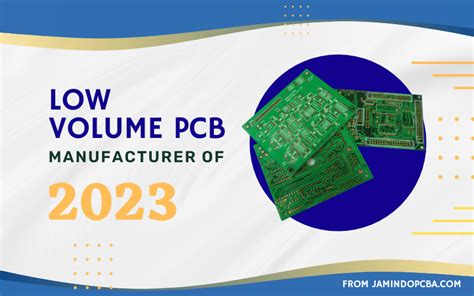
Top Domestic vs Overseas PCB Suppliers
When choosing between domestic and overseas PCB manufacturing companies, you’ll need to weigh factors like PCB manufacturing cost, lead times, and quality consistency. Local suppliers often provide faster turnaround due to proximity, minimizing shipping delays and simplifying communication—critical for rapid prototyping. However, overseas partners, particularly in regions like Asia, might offer lower PCB manufacturing business pricing for small batches, leveraging economies of scale.
Logistics play a key role: domestic orders typically avoid customs hassles, while international shipments can introduce unexpected delays or fees. For example, a U.S.-based manufacturer might charge more per board but deliver in 3–5 days, whereas an overseas factory could reduce PCB manufacturing cost by 30% but extend timelines to 2–3 weeks. Quality assurance also varies—domestic facilities often adhere to stricter certifications (e.g., ISO 9001), while overseas options may require thorough vetting to ensure reliability.
If your priority is speed and transparency, domestic suppliers align better with tight deadlines. For budget-focused projects, overseas PCB manufacturing companies might stretch your funds further, provided you account for potential risks. Always request samples to verify quality before committing to larger orders, regardless of location.
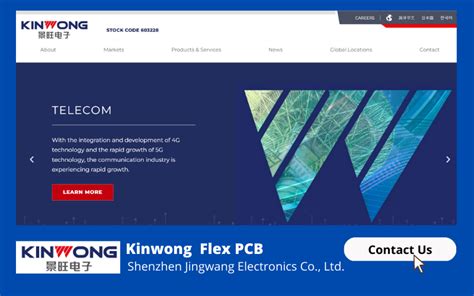
Quality Assurance in Low-Volume PCB Production
When evaluating PCB manufacturing companies for prototyping, understanding their quality assurance (QA) protocols is critical. Even in small batches, defects can derail timelines and inflate PCB manufacturing cost, making rigorous testing non-negotiable. Reputable providers integrate automated optical inspection (AOI), electrical testing, and X-ray analysis to catch issues like soldering errors or trace misalignments early. Consistency matters here—look for certifications like ISO 9001 or IPC-A-600 standards, which signal adherence to industry benchmarks.
While PCB manufacturing for low volumes often prioritizes speed, balancing turnaround with reliability requires expertise. For instance, some suppliers use statistical process control (SPC) to monitor production variability, ensuring even 1-5 boards meet specifications. This approach minimizes rework, preserving both budget and project schedules.
Moreover, transparency in documentation—such as test reports or material traceability—helps you verify quality without onsite visits. For startups or hobbyists, partnering with a PCB manufacturing business that offers detailed QA summaries can streamline field testing and iterations. By prioritizing these practices, you mitigate risks while maintaining flexibility in prototyping phases.
Flexible PCB Ordering for Rapid Prototyping
When building functional prototypes or testing design iterations, you need PCB manufacturing partners that adapt to your project’s unique demands. Leading PCB manufacturing companies now offer modular ordering systems, allowing you to customize everything from layer counts to surface finishes while maintaining control over PCB manufacturing cost. This flexibility is critical for rapid prototyping, where even minor design tweaks can require multiple revisions. Instead of committing to large batches, specialized providers let you order as few as 1–5 boards, aligning with lean development workflows.
A key advantage lies in scalable pricing models—many suppliers reduce per-unit costs for repeat orders without imposing high minimums. This approach bridges the gap between prototyping and small-scale production, making it ideal for startups or engineers validating designs. Additionally, streamlined logistics—such as instant quoting tools and real-time order tracking—ensure faster turnaround times. For instance, some platforms integrate design rule checks (DRC) directly into their portals, minimizing errors before fabrication begins.
However, balancing cost and quality remains essential. Reputable PCB manufacturing businesses prioritize certifications like ISO 9001 or UL listing, even for low-volume runs, ensuring reliability during field testing. By leveraging these tailored services, you gain the agility to iterate quickly without overextending budgets—a strategic edge in fast-paced industries like IoT or medical devices.
Conclusion
When selecting a PCB manufacturing partner for prototyping or small-batch testing, balancing cost, speed, and quality remains critical. Reputable PCB manufacturing companies specialize in optimizing PCB manufacturing cost without compromising on precision, ensuring even low-volume orders meet rigorous standards. Whether you prioritize domestic suppliers for faster logistics or overseas partners for budget flexibility, verifying certifications and production capabilities is essential.
For hobbyists or engineers, aligning with a PCB manufacturing business that offers modular pricing and transparent timelines helps avoid unexpected delays or expenses. Many providers now integrate automated quoting systems, allowing you to adjust design parameters and instantly assess trade-offs between layer counts, materials, and turnaround times. Remember, the right manufacturer doesn’t just deliver boards—they become a strategic ally in refining your prototypes for scalability. By prioritizing clear communication and leveraging flexible order options, you can streamline the journey from concept to field-ready testing.
Frequently Asked Questions
How does low-volume PCB manufacturing differ from mass production?
Low-volume PCB manufacturing focuses on producing smaller batches (typically 1-50 units), prioritizing flexibility and rapid iteration over economies of scale. This approach suits prototypes, field testing, or niche products where lead times and design adjustments are critical.
What factors influence PCB manufacturing cost for small orders?
Key drivers include material selection, layer count, turnaround time, and additional services like custom assembly. While PCB manufacturing companies often charge premiums for low-volume orders, many optimize PCB manufacturing cost through tiered pricing or shared panelization.
Can overseas PCB manufacturing businesses match domestic quality?
Many overseas PCB manufacturing providers now offer comparable quality to domestic suppliers, often at lower costs. However, consider shipping delays and communication barriers when evaluating total project timelines.
How do I ensure reliability in low-volume PCB production?
Verify certifications (e.g., ISO 9001, IPC standards), review testing protocols, and request samples. Reputable PCB manufacturing companies provide detailed documentation, including electrical test reports and material certifications.
What order quantities qualify as "low-volume" in PCB manufacturing?
Most PCB manufacturing business operators define low-volume as 1-100 boards, though some accommodate up to 500 units. Confirm minimum order quantities (MOQs) directly with suppliers, as these vary by capability.
Ready to Start Your Low-Volume PCB Project?
For tailored solutions combining rapid prototyping with industrial-grade quality, explore Andwin PCB’s specialized services. Please click here to request an instant quote or discuss your project requirements with their engineering team.


